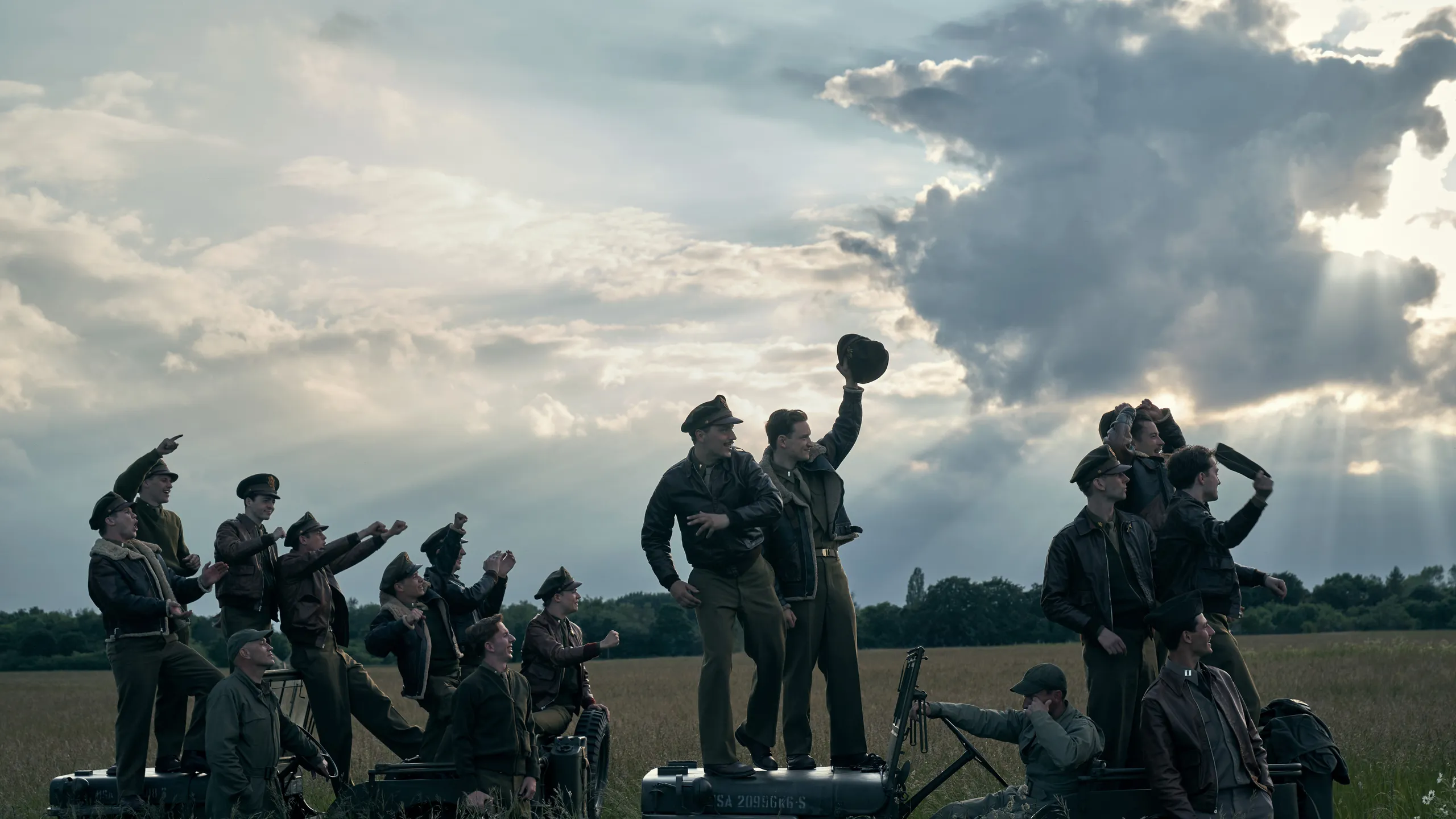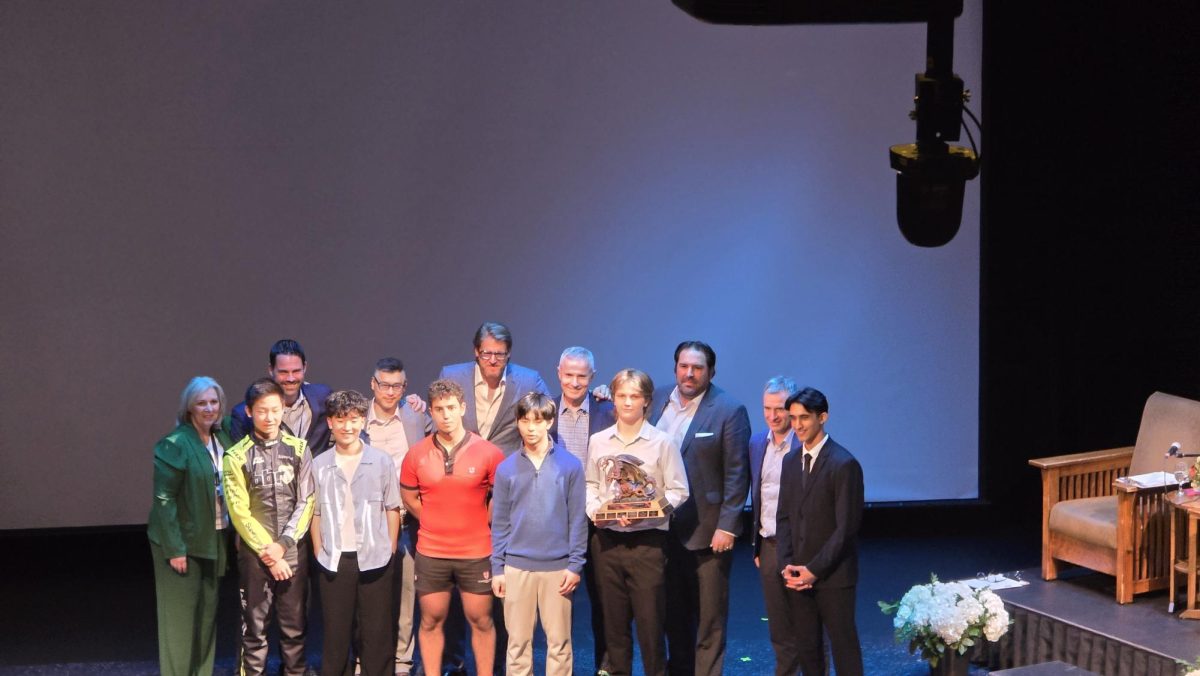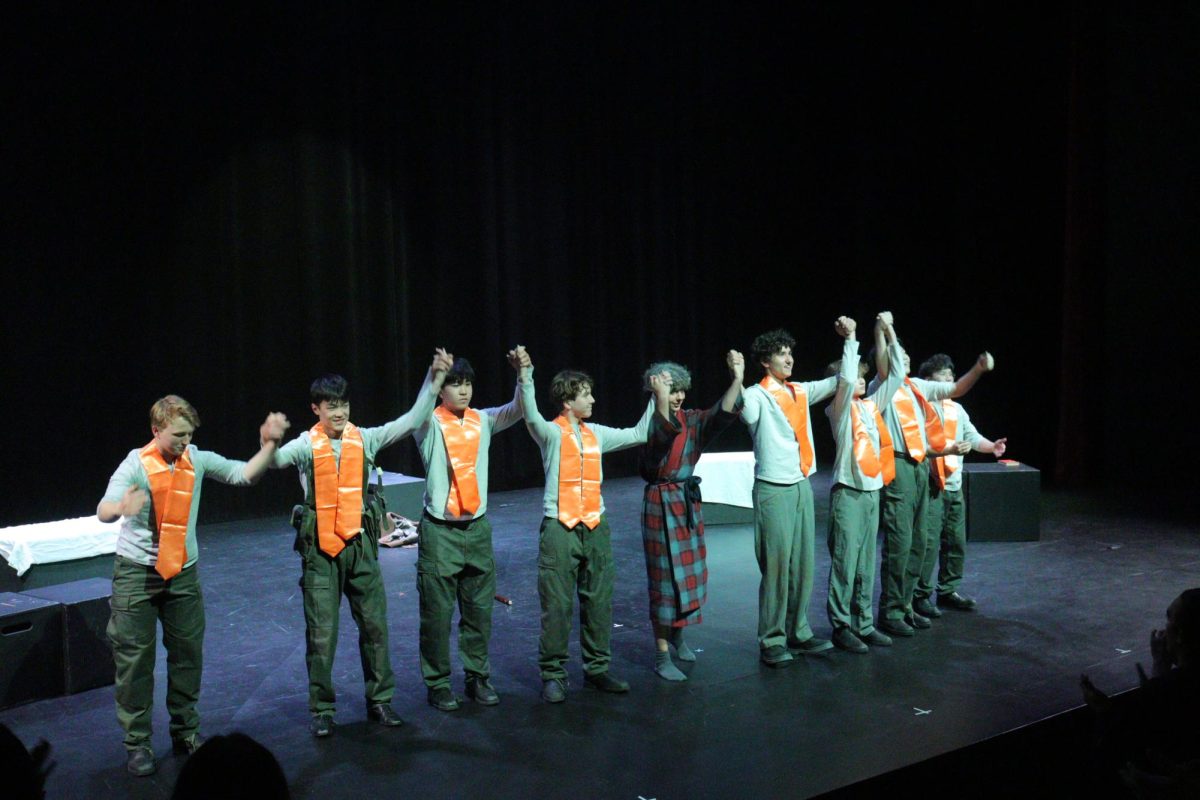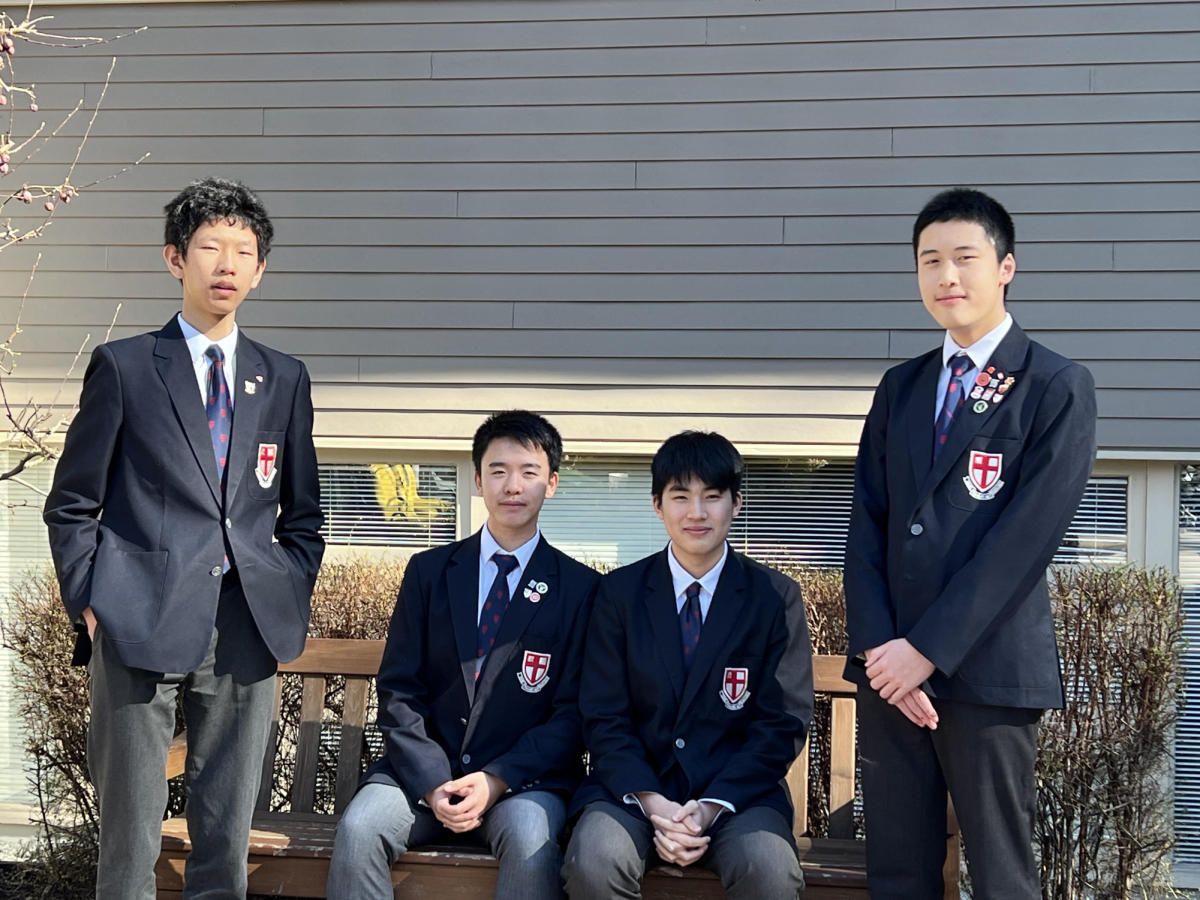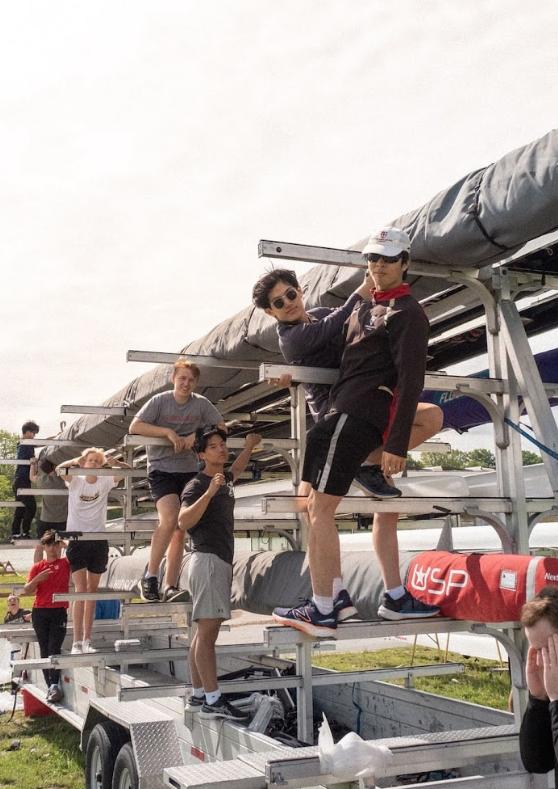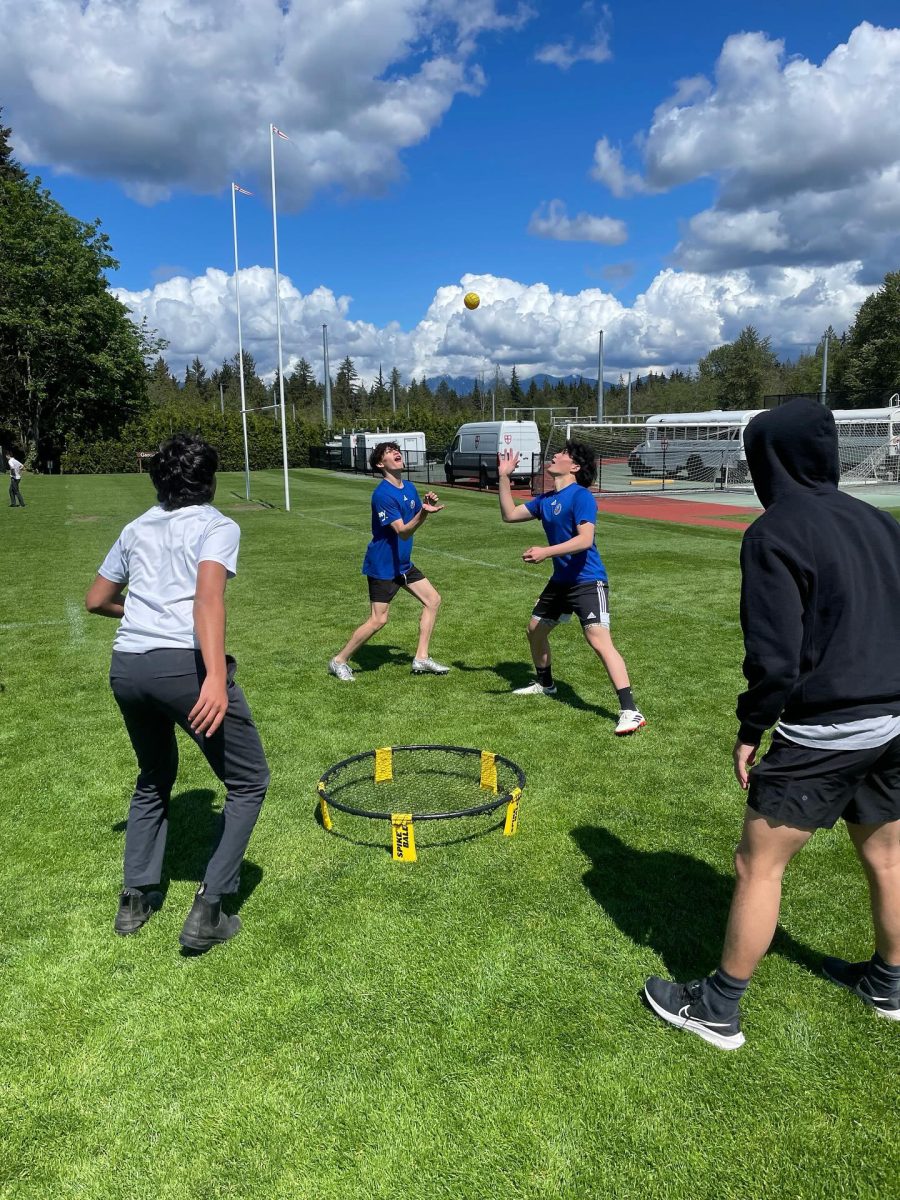On the occasions when my mom was at a business event, my dad and I always shared a TV dinner over the cinema he enjoyed from the past. As Band of Brothers played in the background, twelve-year-old me was more focused on the pizza my dad bought than Spielberg’s depthful exploration of camaraderie— so most of the story went over my head. With that being said, it still left a strong impression, so when my father told me that a third mini-series was being appended along with The Pacific, I thought to myself: “Oh, it’s part of that one really good trilogy.” While my father and I shared very different expectations for Masters of the Air, it was clear that there the show would not be the same
As of now, Apple TV has only released up to half of the ten-part season, so this review is purely based around first impressions and— to a degree— speculation. For a standalone TV series, Masters of the Air does pretty damn well. Though for returning fans who are familiar with the other two entries of the trilogy that were spearheaded by Speilberg and Hanks, Cari Coji Fukunaga’s modern take on the bombardiers of WW2 may leave more to be desired.
Masters of the Air excels in what it set out to do: depicting the fundamental mechanics of warfare. Its stellar cinematography compliments the show’s consistent, clear tone. The camera takes on the flak-ridden battles for air superiority spanning from Germany to North Africa, the gritty slums of Nazi-occupied Europe, and the lush wilderness of Belgium. As a result, Masters of the Air is a show that feels truly grand in scale, a motif that Spielberg and Hanks masterfully weaved into their original trilogical shows. Honestly, the intro paired with Blake Neely’s orchestral score should speak for itself; every time I rewatch those vignettes of flying fortresses piercing through the clouds I get shivers.
Like its predecessors, the show does well in creating a clear dynamic between the characters which is well supported by the solid performances of Austin Butler, Callum Turner, and Anthony Boyle. The friendships made through circumstance feel gripping, with the preconceived knowledge that many of these relationships would be short lived. Seeing these characters find comfort in each other, living by the hour, is painfully compelling.

Fukunaga does well in establishing the stakes very early on, and doesn’t attempt to sugarcoat the harrowing experience of the B-17 pilot. It’s made clear that for every plane that gets shot down, an average of ten young men, brothers in arms, go down with it. From the very first carpeting of Bremen to the Schweinfurt-Regensburg mission, the death tally racks up. Yes, there are missions where nobody returns. Yes, there are times when pilots can crash mere seconds away from landing. War doesn’t have a plot.
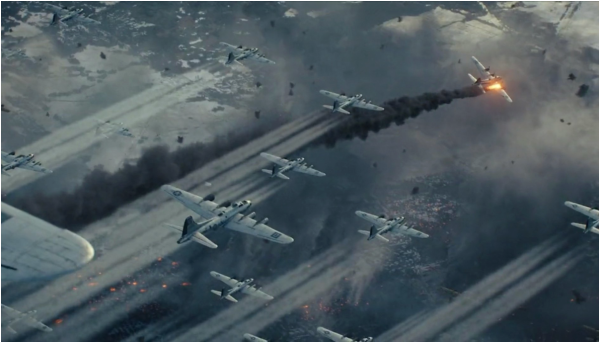
Though the show does very well in reeling in the viewer, its flaws remain noticeable, particularly the glorification of war and the lack of emotional depth.
Yes, this wasn’t advertised to be a serious, anti-war film like The Deer Hunter or The Pianist; yes, it wasn’t made as an informative panorama on historic events, like Liberation or Downfall; and yes, aviators are cocky braggarts, so there’s a bit of nuance to considering the matter of glorification when it comes to Masters of the Air. However, I think any media that depicts war must consider the ramifications of the past and possess a deeper respect for events concerning the loss of human life.
I wish it spent less time hanging over bike races and more time exploring the influence of each concurrent mission on surviving pilots. Fukunaga is entirely capable of doing so, as shown in the relationship dynamic between Croz and Bubbles. Yeah, that scene when Croz reads out the eulogy his deceased friend had originally written for him? Now that’s the type of irony that feels like a punch to the heart. Everything is there for this show to really shine, but much of it feels underutilized.
Another prominent flaw seen throughout the series lies in the disconnect between scenes. I understand that the show’s style of filmmaking relied primarily on character-focused vignettes, which, don’t get me wrong, reinforces the idea that the average pilot rarely gets up to 25 missions. But then again, I found it strange for Fukunaga to introduce two very clear protagonists, only to remove one from two whole episodes, place the other in London for a whole episode, and introduce a third screen-time-heavy character halfway into the series. Who are we following here? How are these characters connected?
Originally, I was very tentative about how formulaic the episodes were getting. I started asking questions like: why did I have to spend an entire 1 hour episode watching two different casts of characters drink and party in two separate, hillside mansions? Why didn’t they just cut and combine the first two episodes, considering that they were entirely identical in terms of structure and pacing? I appreciated the second plotline following Quinn and the resistance fighters and I was excited to see the focus return to Egan and Buck in Germany, but now I remain curious how Fukunaga plans on tying all the episodes together. With the introduction of so many important characters, the undertone of disconnect really threatens the project as a whole and may very well plunge it further into mediocrity.

I think as time went on and my interest in the trilogical series began to re-ignite, my hopes for Masters of the Air were also raised. With so many things going on, Fukunaga’s entry has great potential to become something really special. Though at the point it is currently in, the show remains a jack of all trades and master(s) of none. With only three more episodes to go and no second season in production, it’ll definitely be difficult to uproot the many underlying issues that have only grown increasingly apparent with each episode. But for every bad break, there’s bound to be a miracle, and with the grand scale of battle and well-formed character dynamics, I’m confident that Fukunaga will bring this show home.
Rating: 3/5


